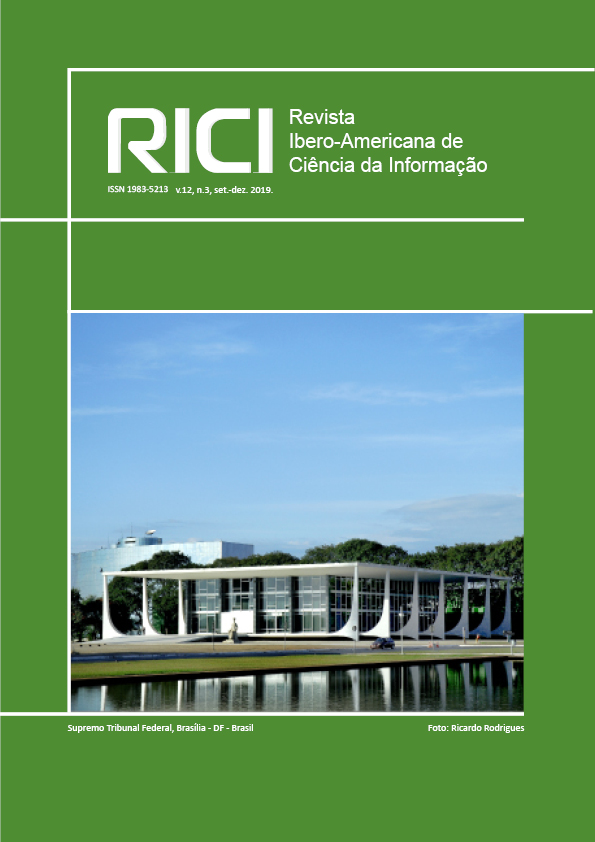Evaluation of the undergraduate courses at the Federal University of Bahia: the university library in focus from 2010 to 2017
DOI:
https://doi.org/10.26512/rici.v12.n3.2019.17762Keywords:
Academic library. Library evaluation. Undergraduate teaching. Federal University of Bahia. Educational evaluation. INEP.Abstract
This article, a partial result of research, has as objectives: (1) to know the contribution of libraries in the evaluation by INEP of the undergraduate courses at the Federal University of Bahia, focusing on basic and complementary bibliographies and specialized journals; (2) demonstrate the modus operandi of the evaluators and their impact on the outcome of the evaluation of undergraduate courses. The grades assigned to UFBA undergraduate courses by the evaluators were analyzed during the on-site visits between 2010 and 2017. The study is configured as a qualitative and quantitative research of descriptive nature, based on the pertinent literature and a document collection regarding the INEP instruments as well as the evaluation reports of the courses, prepared by the evaluators. The data analysis - comparatively to the "known-reality" and the reality experienced by UFBA libraries - has revealed that the evaluation criteria registered by the evaluators are often subjective, not revealing with reliability the actual state of the libraries. It is concluded that having both basic bibliography and complementary bibliography and specialized journals as the only evaluation indicators of university libraries is not a sufficient measure to determine whether it fulfils its function within the academic community. In addition, the weight of its contribution in the total outcome of the evaluation of the courses is insignificant, since it integrates a list of items of the Infrastructure dimension. Given this scenario, it is proposed that the university library be transformed into a fourth dimension to be evaluated - alongside the Didactic-Pedagogical Organization, Teaching and Tutorial Staff and Infrastructure - in the perspective that it is representative in the total evaluation, due to its function of structure of the Institution as well as to justify the investments made.
Downloads
Downloads
Published
How to Cite
Issue
Section
License
Copyright (c) 2019 Nídia Maria Lienert Lubisco, Flávia Bulhões de Sousa

This work is licensed under a Creative Commons Attribution 4.0 International License.
Copyright Notice
Authors who publish in this journal agree to the following terms:
- Authors retain copyright and grant the journal right of first publication with the work simultaneously licensed under the Creative Commons Attribution License 4.0, allowing the sharing of work and recognition of the work of authorship and initial publication in this journal.
- Authors are able to take on additional contracts separately, non-exclusive distribution of the version of the paper published in this journal (ex.: distribute to an institutional repository or publish as a book), with an acknowledgment of its initial publication in this journal.
- Authors are permitted and encouraged to distribute their work online (eg.: in institutional repositories or on their website) at any point before or during the editorial process, as it can lead to productive exchanges, as well as increase the impact and citation the published work.
















